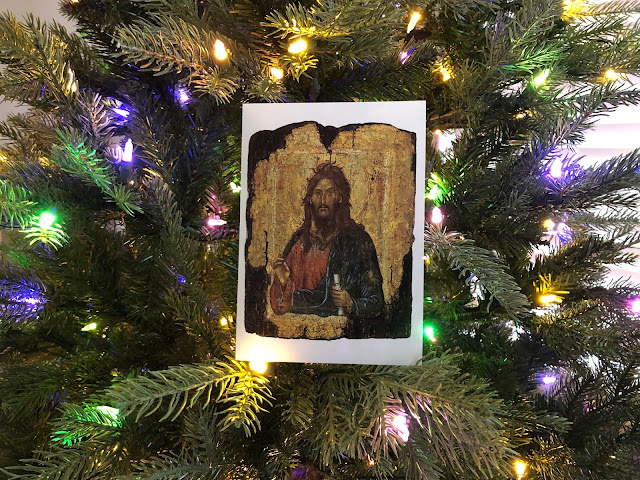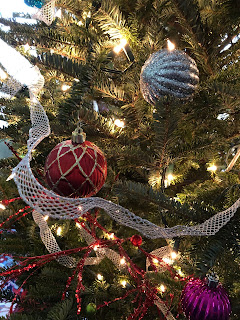Vipers Rejoice!
A Sermon for the Third Sunday of Advent
December 12, 2021
The Rev. Robin Teasley
Rejoice in the Lord always; again I will say, Rejoice. Let your gentleness be known to everyone. The Lord is near. Do not worry about anything, but in everything by prayer and supplication with thanksgiving let your requests be made known to God. And the peace of God, which surpasses all understanding, will guard your hearts and your minds in Christ Jesus.
Philippians 4:4-7
John said to the crowds that came out to be baptized by him, "You brood of vipers! Who warned you to flee from the wrath to come? Bear fruits worthy of repentance. Do not begin to say to yourselves, 'We have Abraham as our ancestor'; for I tell you, God is able from these stones to raise up children to Abraham. Even now the ax is lying at the root of the trees; every tree therefore that does not bear good fruit is cut down and thrown into the fire."
And the crowds asked him, "What then should we do?" In reply he said to them, "Whoever has two coats must share with anyone who has none; and whoever has food must do likewise." Even tax collectors came to be baptized, and they asked him, "Teacher, what should we do?" He said to them, "Collect no more than the amount prescribed for you." Soldiers also asked him, "And we, what should we do?" He said to them, "Do not extort money from anyone by threats or false accusation, and be satisfied with your wages."
As the people were filled with expectation, and all were questioning in their hearts concerning John, whether he might be the Messiah, John answered all of them by saying, "I baptize you with water; but one who is more powerful than I is coming; I am not worthy to untie the thong of his sandals. He will baptize you with the Holy Spirit and fire. His winnowing fork is in his hand, to clear his threshing floor and to gather the wheat into his granary; but the chaff he will burn with unquenchable fire." So, with many other exhortations, he proclaimed the good news to the people. Luke 3:7-18
The crowds come out to the wilderness to be baptized by John and the first thing he says to them is, “You brood of vipers!” I think about how hard it is to hear these words; every time I read them they make me cringe. This sounds like really bad PR for Christianity, and I can understand why people who don’t go to church much, or at all, say that they don’t want to hear such fire and brimstone, that their lives are hard enough already.
Imagine getting a Christmas card with John the Baptist pictured on it and inside are written the words “You brood of vipers! Who warned you to flee from the wrath to come? Bear fruits worthy of repentance.” Merry Christmas! Actually, I can imagine it. My friend Shelby once bought a whole pack of John the Baptist note cards and sent them to me with regularity. Maybe you have that kind of a friend? One who will speak truth to you with love and humor, who is not afraid to call a viper a viper.
According to Luke, great crowds streamed into the desert to get yelled at by John. Why would they do that? As I pondered this, I came across a commentary that focused on the question people asked John at the end of his sermon. They ask him, “What should we do?" That's not a question we ask when things are going just fine. It's the question we ask when we’re at the end of our rope, when we have tried and failed, when our lives are falling apart. "What should we do?"
John’s answer to this question was not what we might expect from this desert dwelling, holy man. What kind of answer would you expect? Buy a scratchy coat and wear it? Live on a diet of locusts? Give away all your possessions? Come join me out here in my desert dementedness? But John did not advise them to do any of that. John told them to repent.
He told them to stop, turn, and try again. That’s really what repentance means. Stop imagining that God is not aware of the way you are living your life. Recognize the truth that to God all hearts are open, all desires known, and from God no secrets are hid. There is a great release and freedom in just letting go and letting God have control of your life. When we stop, turn, and try again with intention there can be healing.
The Lord is near, says Paul to the Philippians, ready to hear us and grant us peace. We must turn away from viperous thinking and brood thinking, says John to the crowd. We must stop striking out at others when we feel threatened or afraid. John says there is another way and that way is to turn, to turn toward God. John says that if we will not hear God calling us, there will be others who will hear and respond. Others will turn, change, forgive, and let go. They will be the bearers of good fruit. They will turn and redirect their lives.
John helps us see what repentance looks like, and he gives us some specific directions - be generous with your resources, be honest, do not make threats or false accusations. Stop doing viperous things and instead do things that bring God near to everyone. Stop making excuses and just repent. Stop, turn, and try again.
Hearing this description of a Jesus who judges with fire, makes us uncomfortable yet again. Perhaps we are not clear on the meaning of judgment. We might equate judgment with condemnation, but in fact, to judge something is to see it clearly — to know it as it truly is. Judgment is about discernment and perception. Judgment is about revealing what needs to be revealed, so that forgiveness, healing, and reconciliation can happen.
What if John is saying that the Christ who is coming knows what is in our hearts, that he knows us at our best and at our worst? As commentator Debi Thomas says, “Maybe the winnowing fork is an instrument of perceptive love, patiently wielded by the One who discerns in us rich harvests still hidden by chaff. Maybe it's in offering God every particular of our lives that we give God permission to "clear" us — to separate all that's destructive from all that is good, beautiful, and priceless.”
When we can hear John’s words that all of us will, from time to time, find ourselves among broods of vipers and that we have been given an alternative way of life, we will hear it as good news. When we can see repentance and forgiveness and reconciliation in this way, we will experience God’s saving love. We will rejoice in the Lord always, and our actions will flow from this love and joy!
In closing, I offer you this poem written by Steve Garnaas-Holmes -
Don't be afraid. John isn't threatening you.
He's setting you free,
relieving you of the crap that messes you up.
What are the rough places in you
that need to be made smooth,
the crooked places that need straightening out?
Surrender them to God.
What are the lies that clutter up your head,
the fears that infect your heart?
Let them be winnowed out and burned.
And what are the gifts you don't share,
the second coat you don't give away,
the despair you try to sell, overpriced?
Let God gently take them from your hands.
Christ comes with the music of love in his heart.
Let go of that suit of armor, attached as you are to it.
You can be free now. Throw it off, and dance.
I am indebted to Debie Thomas for inspiration for this sermon. journeywithjesus.net
Steve Garnaas-Holmes, Unfolding Light, unfoldinglight.net











Comments
Post a Comment